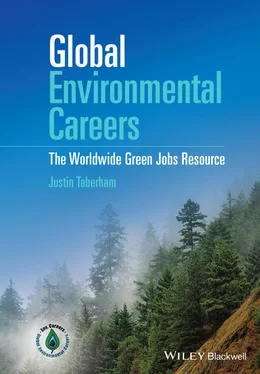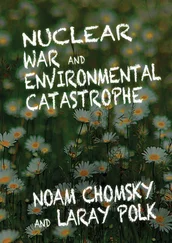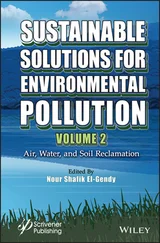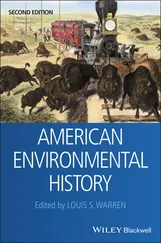Justin Taberham - Global Environmental Careers
Здесь есть возможность читать онлайн «Justin Taberham - Global Environmental Careers» — ознакомительный отрывок электронной книги совершенно бесплатно, а после прочтения отрывка купить полную версию. В некоторых случаях можно слушать аудио, скачать через торрент в формате fb2 и присутствует краткое содержание. Жанр: unrecognised, на английском языке. Описание произведения, (предисловие) а так же отзывы посетителей доступны на портале библиотеки ЛибКат.
- Название:Global Environmental Careers
- Автор:
- Жанр:
- Год:неизвестен
- ISBN:нет данных
- Рейтинг книги:3 / 5. Голосов: 1
-
Избранное:Добавить в избранное
- Отзывы:
-
Ваша оценка:
- 60
- 1
- 2
- 3
- 4
- 5
Global Environmental Careers: краткое содержание, описание и аннотация
Предлагаем к чтению аннотацию, описание, краткое содержание или предисловие (зависит от того, что написал сам автор книги «Global Environmental Careers»). Если вы не нашли необходимую информацию о книге — напишите в комментариях, мы постараемся отыскать её.
Global Environmental Careers – The Worldwide Green Jobs Resource
Kevin Doyle,
Lisa Yee-Litzenberg,
Laura Thorne,
Sharmila Singh,
Carol L. McClelland, PhD, Green Careers for Dummies
Global Environmental Careers — читать онлайн ознакомительный отрывок
Ниже представлен текст книги, разбитый по страницам. Система сохранения места последней прочитанной страницы, позволяет с удобством читать онлайн бесплатно книгу «Global Environmental Careers», без необходимости каждый раз заново искать на чём Вы остановились. Поставьте закладку, и сможете в любой момент перейти на страницу, на которой закончили чтение.
Интервал:
Закладка:
I have been in the environment sector for more than 30 years and I feel that it is now time to pass on my experience to the next generation, which has a much more global outlook on career development. I mentor a group of young people in the environment sector, worldwide. A mentor is defined in the Cambridge English Dictionary (2021) as ‘a person who gives a younger or less experienced person help and advice over a period of time, especially at work or school’. The practical examples of this are reviewing resumes and applications, suggesting suitable employers, course choices, interview help and sometimes direct approaches and recommendations to potential employers. There is also the element of personal support which is always encouraging. I would recommend to anyone in the sector that they take on this role. There are many courses on how to develop mentoring skills and many companies have their own training schemes in this area.
I was inspired to write about green careers after finding a book in the shop at the wonderful Monterey Aquarium in California, USA, whilst on holiday. It was ‘Environmental Careers in the 21 stCentury’ by The Environmental Careers Organization, published in 1999. It is a really helpful text covering green careers, mainly in the USA.
There is also a growing number of ‘green career coaches’ who can help with career development. The US expert, Carol McClelland, was always a great source of information in terms of personal development in the green sector.
1.3 Introduction to the Book
This book is aimed at anyone worldwide who has an interest in developing a career in the environment sector: students, undergraduates, career‐changers, university and school careers services, major organisations that are asked for careers information and trade and professional body organisations in the environment sector.
There is a need for a resource that brings together a global text, as well as a linked online resource which cuts through the myriad jobs websites that one finds if you type ‘environmental jobs’ or ‘green jobs’ into a search engine, as well as the large number of books that examine a single country or a small part of the global environment sector.
This book focuses on the career paths that offer the greatest opportunities globally, specifically for those who want to develop an environmental career. There are, of course, many areas of work that are not covered. If I covered every sector, this book would be too big and unwieldy; areas such as mapping and GIS, wildlife crime and planning could easily have been included, but I aim to use the Env.Careers website to fill in any gaps and make any amendments needed.
This book is a practical guide to increasing your chances of developing a successful career within the global environment sector, wherever you are based and want to work. The book has a global multi‐sector perspective and gathers information, tips and advice from professionals in the sector. The layout of the book uses as consistent a format as feasible and is written with a view to minimising jargon or acronyms. There are many differences in environmental terminology worldwide, which is very challenging, and I have tried to be open to using multiple wordings, but there are terminology differences that are unavoidable.
This book is supported by online content on the Env.Careers website, www.env.careers(managed by the author). As new sectors develop, the website will be the location for updates and background information. As the sector is maturing rapidly and changing swiftly, this book aims to meet the need for an up‐to‐date resource in this area, with online resources to back it up and provide updates.
This is an introductory book that is structured as a compendium of sectoral information. There are two larger chapters for water management and environmental consultancies, as these are key areas for people to develop environmental careers in globally.
There are frequent references throughout the book to informative website addresses. The author and contributors have attempted to ensure that, at the time of printing, these addresses were valid. However, websites are often dynamic, and addresses do change. With time, some of the addresses may no longer be valid. Nevertheless, I hope that, where this occurs, the references will still enable you to find your way to the same information, even if at a different address.
Please also note that a mention of a company, website or service within the book does not constitute an endorsement from the author or book contributors unless this is made very clear in the text .
1.4 What Is a Green Job?
There are many formalised as well as general definitions of what jobs fit into the global ‘green’ sector. Many are based on the use of the word ‘environment’, meaning ‘environmental services’, such as waste management, the supply of green goods and products like pollution treatment technologies. ‘The Environment’ covers the natural, built and human environment. There are many careers that touch on environmental issues but are not completely within the scope of being environmental. The type of positions and workplaces vary massively, as do the organisations working in the sector. Some of the many definitions are below.
OECD (2010) notes in its paper ‘Green Jobs and Skills’:
For the purposes of this paper, green jobs are defined as jobs that contribute to protecting the environment and reducing the harmful effects human activity has on it (mitigation), or to helping to better cope with current climate change conditions (adaptation).
UNEP (2008) offers a more detailed definition:
Green jobs are defined as work in agricultural, manufacturing, research and development (R&D), administrative, and service activities that contribute substantially to preserving or restoring environmental quality. Specifically, but not exclusively, this includes jobs that help to protect ecosystems and biodiversity; reduce energy, materials, and water consumption through high efficiency strategies; de‐carbonise the economy; and minimise or altogether avoid generation of all forms of waste and pollution.
The Apollo‐Alliance (2008) definition for so called ‘green collar jobs’ was Green‐collar jobs are well‐paid career track jobs that contribute directly to preserving or enhancing environmental quality. Like traditional blue‐collar jobs, green‐collar jobs range from low‐skill, entry‐level positions to high‐skill, higher‐paid jobs, and include opportunities for advancement in both skills and wages.
The US White House Task Force on the Middle Class (2009) noted:
Green jobs involve some tasks associated with improving the environment, including reducing carbon emissions and creating and/or using energy more efficiently; they provide a sustainable family wage, health and retirement benefits, and decent working conditions; and they should be available to diverse workers from across the spectrum of race, gender and ethnicity
(United States Department of Labour 2009)
The above definitions give a generally helpful outline as to what green jobs cover, but there are disputes over some roles. Often, there is a ‘variety of shades’ in terms of whether a job is green or not.
Brian Handwerk highlighted (2012):
…defining exactly what green jobs are, how they can be created, and how they benefit the economy and environment presents quite a challenge.
As green issues become more integrated within company procedures and environmental regulation, there is an argument that trying to pigeonhole green jobs is not helpful. I can understand this argument – we want all jobs to have an element of being ‘green’ – but generally, green jobs are an obvious choice for those who want to actively ‘make a difference’ to the world we live in. There is a fundamental difference between someone who purely wants to just get a job and someone who wants to make a positive change in the world through their career.
Читать дальшеИнтервал:
Закладка:
Похожие книги на «Global Environmental Careers»
Представляем Вашему вниманию похожие книги на «Global Environmental Careers» списком для выбора. Мы отобрали схожую по названию и смыслу литературу в надежде предоставить читателям больше вариантов отыскать новые, интересные, ещё непрочитанные произведения.
Обсуждение, отзывы о книге «Global Environmental Careers» и просто собственные мнения читателей. Оставьте ваши комментарии, напишите, что Вы думаете о произведении, его смысле или главных героях. Укажите что конкретно понравилось, а что нет, и почему Вы так считаете.












